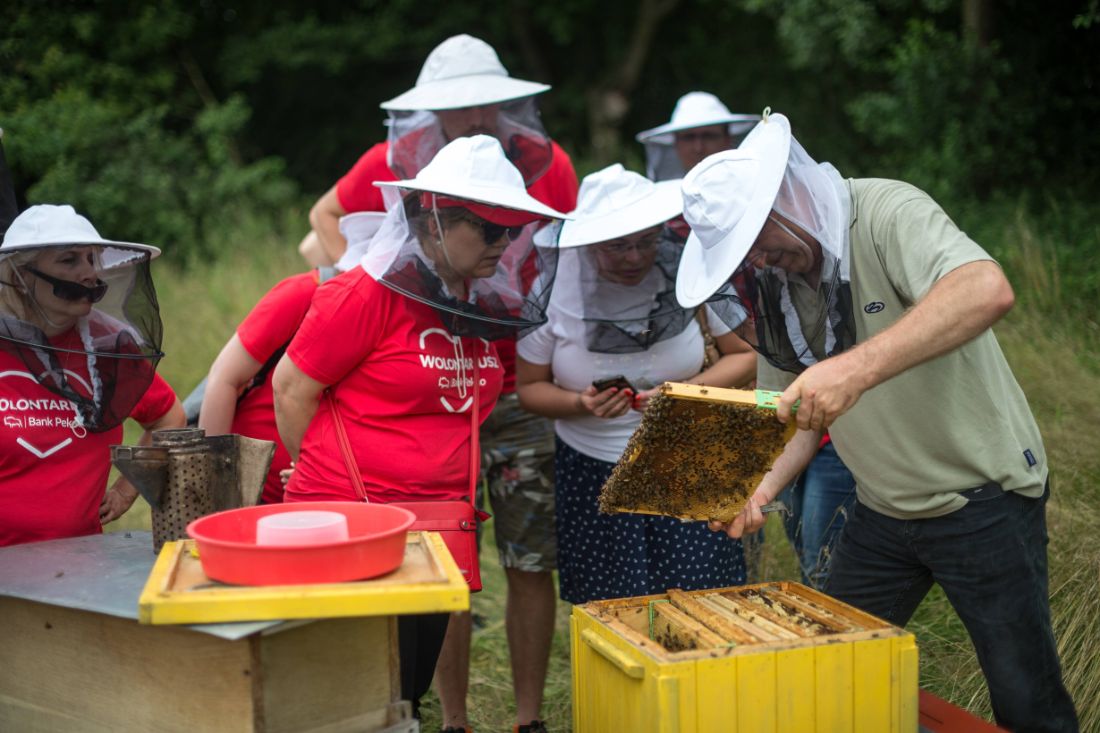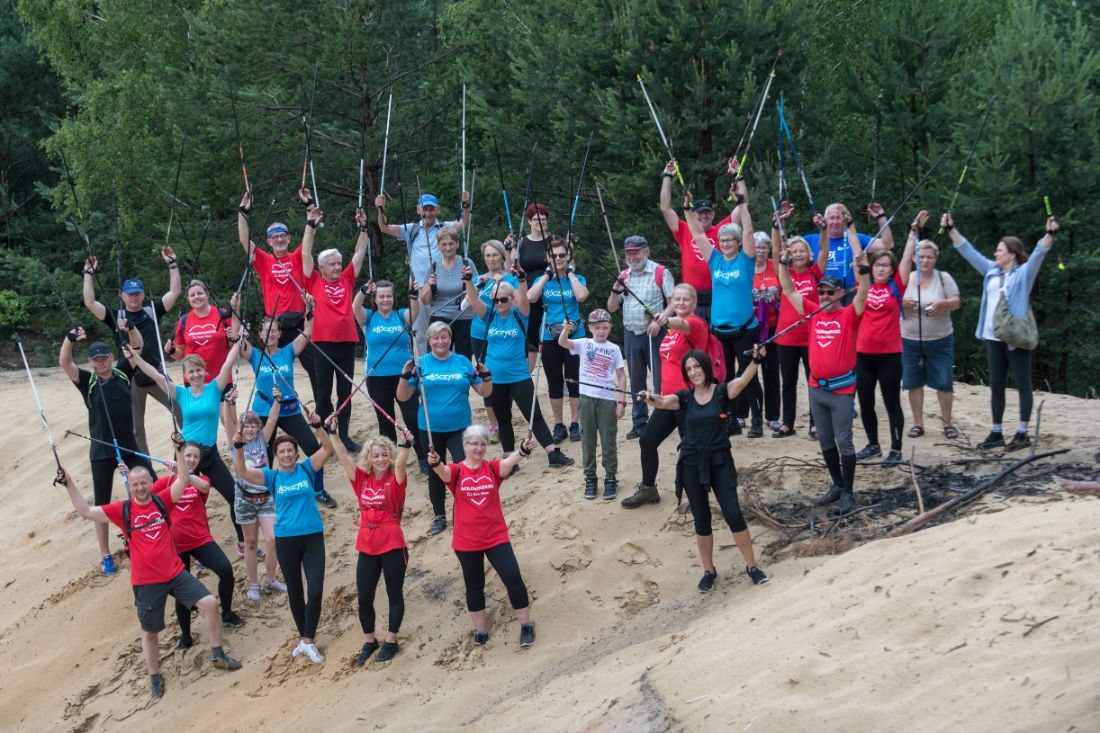The use of AI directly impacts job security for employees in customer service departments, including those working in bank branches, business centres, corporate banking centres, private banking outlets, and, most notably, call centres. These employees, especially those in physical outlets, are most at risk of job displacement due to digital transformation. This applies to both employees with employment contracts and those under civil law contracts. Many in this group have specialised skills gained through direct customer service experience, which may limit their opportunities in more automated and digitised banking sectors.
Managing Material Impacts on Employees, Addressing Key Risks, and Leveraging Opportunities [S1-4]

The implementation of AI-driven solutions has enabled the automation of many banking operations. The digitalisation of services, automation, and robotics also impact customer service functions, where chatbots now provide quick and precise responses to customer inquiries.
To mitigate the negative impact on job stability that may arise from the implementation of AI solutions, one of the key objectives of the Bank’s HR policy is to invest in skills development, with a strong focus on future competencies. Key Initiatives for employees in 2024:
The Academy of the Future – a comprehensive training programme focused on developing key competencies essential for success in the modern work environment. The latest edition, designed by an experienced team of experts, includes a series of webinars, workshops, and dedicated learning materials, enabling participants to expand their future-oriented skills. The programme emphasises both cognitive and technological competencies, balancing the development of creativity and adaptability with the ability to effectively utilise modern technologies, including artificial intelligence. It provides in-depth knowledge on AI applications as well as practical skills to ensure its efficient implementation. The third edition of the program is scheduled for the turn of 2024/2025. In the fourth quarter of 2024, five webinars were held as part of this project focused on topics related to artificial intelligence, quantum finance, cognitive resilience and agility, strategic prospecting, and working with a sense of purpose.
The #AI Ambassador Programme – as part of the COPILOT pilot for M365 launched in Q3, we conducted a series of dedicated trainings for #AI Ambassadors, as well as other employees. In connection with the pilot, we established the AI Ambassador Program , which aims to engage employees in the process of adopting and developing AI skills, sharing knowledge and building a community focused on developing competence in the use of AI through the dissemination of a tool based on the use of artificial intelligence. The project is being implemented in collaboration with external partners, who will support the deployment, testing, and evaluation of Copilot’s capabilities within the Bank.

We also engaged a significant number of employees who do not serve as AI Ambassadors to learn about how COPILOT can be used in their daily work. More than 300 employees attended training sessions in dedicated areas: for sales, finance, legal and HR.
A total of more than 500 people took part in all AI training courses.
Robotics Academy
The Robotics Academy is a continuation of a programme designed to develop digital competencies, integrate automation into daily tasks, and teach employees how to build their own robotic solutions. This proprietary training programme has been developed and is delivered by our in-house experts in collaboration with the world’s leading provider of automation solutions. The Academy consists of a series of 6 workshop meetings with the participation of 10 people – selected participants. Each workshop lasts 4 hours and is held online on the MS Teams platform. The seventh edition of the program was held in December 2024.
Additionally, as part of a training cycle launched in 2024 to mitigate risks related to the physical safety of employees engaged in direct customer service, a total of 73 training sessions were conducted in this area.
As part of the Bank’s initiatives to address material workforce impacts, several internal regulations have been implemented, including the Procedure for Counteracting Mobbing, the Whistleblowing Procedure at Bank Pekao S.A., and the Anti-Corruption Policy. These regulations and their scope are described in sections 13.4.1.2.1 and 13.4.1.2.3.
The types of surveys conducted by the Bank and the use of result analyses are described in section 13.3.1.1.2 of this Report.
Within the organisational structure, the Bank has dedicated HR Business Partner (“HRBP”) resources responsible for managing significant workforce-related impacts. As of 1 November 2024, these resources comprised 41 active full-time positions. The role of HRBP units includes identifying, analysing, and assessing risks related to workforce policies, reporting these risks, and initiating actions to mitigate or eliminate them.

The spirit of volunteering and social involvement has become an integral part of the Bank’s corporate culture and strategic activities. One of the key components of our ESG Strategy for 2021–2024 is the Employee Volunteering Programme, which aligns with the fourth pillar of the Bank’s Business Strategy, “Responsibility”, particularly in the area of “Society”. It also corresponds with the second pillar of the ESG Strategy, “Social Responsibility”.
The participation of Bank Pekao employees in volunteering initiatives is governed by the Employee Volunteering Programme Participation Rules (hereinafter: the “Volunteering Regulations”). The Volunteering Team in the Human Resources Division is responsible for managing volunteer activities at the central level. Every Bank employee, regardless of unit or outlet, is eligible to participate in the volunteering programme and is entitled to 16 hours of paid volunteering leave per calendar year. Providing employees with the opportunity to engage in volunteering during working hours benefits both the organisation and the employees, enabling them to pursue personal goals and passions. This initiative allows employees to engage in meaningful activities that matter to them, fostering a sense of fulfilment beyond their professional duties.

The Bank’s intranet features a dedicated Volunteering Platform providing information on charitable initiatives and support actions. Volunteer leaders participate in preparatory meetings to equip them for their roles. Each year, we observe a steady increase in employee engagement in volunteering activities, reflecting a growing commitment to social responsibility.
In 2024, the Bank’s volunteer initiatives focused on:
- Education, particularly in financial literacy and environmental awareness, targeted at children, young people, and seniors,
- Providing assistance, promoting equal opportunities, and preventing social exclusion,
- Preserving and promoting national traditions and cultural heritage.
Main Forms of volunteering organised by the Bank:
- Volunteering initiatives in collaboration with selected social partners,
- The We Are Close grant competition,
- Initiatives organised by employees.
The Bank’s management team is also actively engaged in volunteering efforts. Key initiatives are summarised in reports and updates on the Bank’s website, highlighting the impact of employee volunteering.
We Are Close
The We Are Close grant competition is designed for employees who identify and respond to the needs of local communities. Its direct beneficiaries include members of organisations receiving assistance, residents of care and educational institutions, participants in workshops and educational programmes, patients in medical facilities, members of sports and music clubs, and animals in shelters.
In 2024, volunteers completed 140 projects under the grant competition, supporting initiatives such as children’s education, refugee assistance, combating exclusion (including digital and educational exclusion), healthcare and life-saving support, promoting culture and the arts, encouraging literacy, advancing sports and healthy lifestyles, animal welfare, or environmental protection, etc. As part of the 10th edition of the competition, an additional 20 projects were specifically allocated to flood relief efforts within the crisis volunteering programme.
Beyond the grant competition, the Bank actively engages in numerous long-standing employee volunteering initiatives. Examples include a long-running blood donation campaign involving employees, first aid training workshops to equip volunteers with the skills to respond effectively in emergency situations, and environmental workshops held at the Bank’s urban beekeeping site, aimed at educating employees on urban ecosystems and sustainability.
In the next year, in addition to cyclical volunteer activities, such as the We Are Close grant competition and cooperation with selected Bank’s social partners in Volunteerism, with the full involvement of our employees and in accordance with their needs, we plan to initiate activities as part of the operationalization of the Bank’s new Strategy to manage the significant impacts, risks and opportunities associated with our own employee resources. Work on the new Strategy is currently underway, within the framework of which the assumptions, goals and measures of the above-mentioned Activities will be defined.
The activities related to IRO described in this chapter refer to the Bank’s own workforce and have no reference to the value chain.
